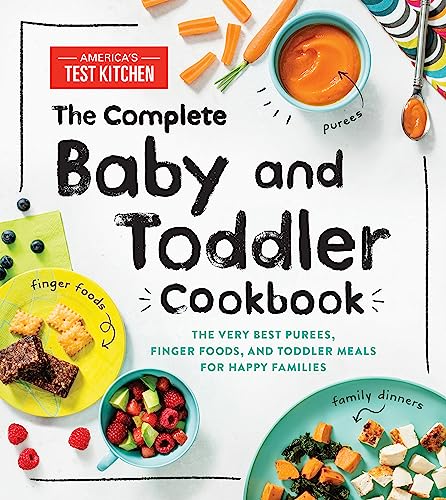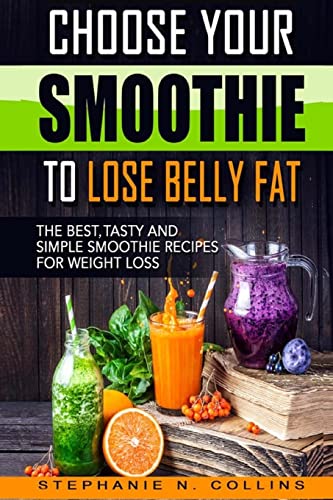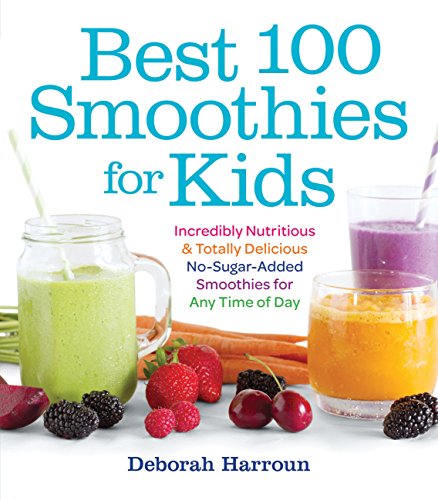Let’s face it, getting kids to eat their fruits and veggies can sometimes feel like trying to herd cats – a fun, but often futile, endeavor! But what if we told you there’s a delicious, easy, and even fun way to sneak in those essential nutrients? Enter the mighty smoothie! These vibrant, creamy concoctions are a game-changer for parents and a tasty treat for little ones.
Smoothies are incredibly versatile, allowing you to pack in vitamins, minerals, and fiber without a peep of complaint. Whether you’re dealing with picky eaters, looking for a quick breakfast solution, or just want to boost your child’s nutrition, the best smoothie recipes for kids can be your secret weapon.
We’ve scoured the options to bring you a hand-picked selection of the top recipe books designed to make your blending journey a breeze. From comprehensive guides to specific toddler-friendly options, we’ve got something for every family. Let’s dive in and discover how to make healthy eating both simple and exciting!
Why Smoothies Are a Parent’s Best Friend
Smoothies aren’t just a delicious drink; they’re a nutritional powerhouse disguised as a treat! Here’s why they’re perfect for your little ones:
- Picky Eater Solution: You can hide a surprising amount of spinach or kale in a fruity blend, and they’ll never know!
- Nutrient-Dense: Pack in fruits, veggies, healthy fats, and protein for a balanced meal or snack.
- Quick & Easy: Most recipes take minutes to prepare, perfect for busy mornings or after-school snacks.
- Hydrating: A great way to increase fluid intake, especially on hot days.
- Customizable: Adapt recipes to dietary needs, allergies, or simply what you have on hand.
How We Chose Our Top Picks
When selecting the best smoothie recipes for kids, we looked for a few key factors:
* Kid-Friendly Focus: Recipes specifically designed for children’s tastes and nutritional needs.
* Variety: A good range of flavors, ingredients, and nutritional profiles.
* Clarity & Ease: Simple instructions, readily available ingredients, and helpful tips.
* Nutritional Value: Emphasis on whole foods and balanced ingredients.
* Positive Reviews: What other parents are saying about the resources.
Our Top 10 Picks for the Best Smoothie Recipes for Kids
Let’s explore some fantastic resources that will help you whip up delightful and nutritious drinks for your children.
1. Best 100 Smoothies for Kids: Incredibly Nutritious and…

This book is a fantastic starting point for any parent looking to introduce a wide variety of healthy, delicious, and easy-to-make smoothies into their child’s diet. It really shines by focusing on nutrient-dense options that are naturally appealing to kids, making it easier to ensure they’re getting those essential vitamins and minerals. You’ll find recipes for every occasion, from quick breakfasts to refreshing after-school treats, all designed with little palates in mind.
-
Key Features:
- 100 diverse recipes specifically for children.
- Focus on nutrient-rich ingredients.
- Easy-to-follow instructions for busy parents.
- Includes tips for customizing smoothies.
- Categorized for different needs (e.g., immune boost, energy).
-
Pros:
- Extensive collection offers plenty of choices.
- Recipes are genuinely kid-friendly and delicious.
- Great for boosting fruit and vegetable intake.
- Promotes healthy eating habits from a young age.
-
Cons:
- May require a good variety of fresh produce.
- Some unique ingredients might not be staples in every pantry.
-
User Impressions: Parents rave about how this book has transformed their kids’ relationship with healthy eating. Many highlight the clever ways vegetables are incorporated, making it a go-to for even the pickiest eaters. The recipes are praised for being simple, quick, and consistently delicious.
2. Kids Smoothie Recipe Book: A-Z Guide to Healthy, Yummy,…

Talk about a comprehensive guide! This A-Z book is a treasure trove for parents who want to dive deep into the world of healthy smoothies for kids. It doesn’t just offer recipes; it educates on ingredients, nutritional benefits, and even tips for getting your kids involved in the preparation. The “yummy” part isn’t just a promise; the recipes are genuinely designed to be appealing, proving that healthy doesn’t have to mean sacrificing taste.
-
Key Features:
- Alphabetical guide for easy navigation.
- Detailed nutritional information for ingredients.
- Tips for making smoothies allergen-friendly.
- Engaging descriptions to inspire kids.
- Variety of flavor profiles to explore.
-
Pros:
- Excellent educational resource for parents.
- Helps customize smoothies based on nutritional needs.
- Recipes are well-tested and kid-approved.
- Encourages creativity in the kitchen.
-
Cons:
- The A-Z format might be less intuitive for some users than categorized recipes.
- Might be a bit overwhelming for absolute beginners due to its comprehensiveness.
-
User Impressions: This book consistently receives high marks for its detailed approach and the sheer variety of recipes. Users appreciate the guidance on ingredient choices and the practical tips for dealing with allergies or dietary restrictions. It’s often recommended as a staple for any family kitchen.
3. The Complete Baby and Toddler Cookbook: The Very Best…

While not exclusively a smoothie book, “The Complete Baby and Toddler Cookbook” is an invaluable resource for parents navigating the early stages of solid foods, and it does include fantastic toddler smoothie recipes among its vast collection. This cookbook excels at providing age-appropriate, nutritious, and easy-to-make meals, including blends perfect for tiny tummies. It’s ideal for those looking for a holistic approach to feeding their little ones, with smoothies serving as just one of many healthy options.
-
Key Features:
- Covers baby-led weaning, purees, and toddler meals.
- Includes a dedicated section for nutritious drinks.
- Age-appropriate recipes for various developmental stages.
- Focus on whole, unprocessed ingredients.
- Practical tips for meal planning and food introduction.
-
Pros:
- Comprehensive guide for feeding young children.
- Smoothie recipes are perfectly tailored for babies and toddlers.
- Helps introduce a wide range of flavors and textures.
- Excellent for parents new to homemade baby food.
-
Cons:
- Smoothie-specific content is part of a larger book, not the sole focus.
- Might be more detailed than some parents need if they only want smoothie recipes.
-
User Impressions: Parents absolutely adore this cookbook for its practical advice and delicious, healthy recipes. They frequently mention how much their babies and toddlers enjoy the meals, and the smoothie sections are often highlighted as lifesavers for busy days or picky phases.
4. Simple Smoothie Recipes With Pictures: 7 categories of…

Sometimes, you just need clear visuals to guide you, especially when you’re short on time. This book delivers exactly that: “Simple Smoothie Recipes With Pictures” makes the blending process incredibly easy and appealing. The inclusion of pictures for each recipe is a huge plus, helping you envision the final product and reassuring you that you’re on the right track. The seven categories simplify finding the perfect blend for any mood or nutritional goal.
-
Key Features:
- Full-color pictures for every recipe.
- Recipes organized into 7 easy categories.
- Uses common, accessible ingredients.
- Focus on quick preparation.
- Clear, step-by-step instructions.
-
Pros:
- Visual guide is excellent for quick selection and motivation.
- Categorization helps find recipes based on need (e.g., energy, detox).
- Recipes are truly simple and beginner-friendly.
- Great for getting kids interested in choosing their own blends.
-
Cons:
- May offer less in-depth nutritional information compared to other books.
- The focus on simplicity might mean fewer complex flavor profiles.
-
User Impressions: Reviewers love the straightforward nature and the visual appeal of this recipe book. Many mention that the pictures make it much easier to decide what to make and can even entice kids to try new combinations. It’s praised for being a practical and user-friendly resource.
5. 200 Best Smoothie Bowl Recipes

While traditional smoothies are fantastic, sometimes you want something a bit heartier and more fun to eat with a spoon! “200 Best Smoothie Bowl Recipes” takes the concept of a blended drink and turns it into a vibrant, customizable meal. Smoothie bowls are incredibly popular for their aesthetic appeal and the opportunity to add fun toppings, which can be a huge hit with kids. This book opens up a whole new world of creative and nutritious breakfast or snack options.
-
Key Features:
- 200 unique smoothie bowl recipes.
- Ideas for creative and healthy toppings.
- Recipes suitable for various dietary preferences.
- Focus on fresh, whole ingredients.
- Tips for achieving the perfect bowl consistency.
-
Pros:
- Offers a fun and interactive way to eat smoothies.
- Great for boosting nutrient intake with toppings.
- Encourages creativity and customization.
- Can be more filling than a regular smoothie.
-
Cons:
- Requires a bit more prep and cleanup than a simple smoothie.
- Kids might get messy with toppings.
-
User Impressions: This book is a hit with those looking to elevate their smoothie game. Users love the sheer number of ideas and the inspiration for toppings that make each bowl a unique experience. Many report that their kids are more excited to eat these “dessert-like” meals.
6. DELICIOUS AND HEALTHY SMOOTHIE RECIPES FOR TODDLERS: The…

Specifically crafted for the toddler years, this book is a godsend for parents dealing with notoriously picky eaters or those simply wanting to ensure their little ones get the best start. “Delicious and Healthy Smoothie Recipes for Toddlers” understands the unique nutritional needs and taste preferences of this age group. The recipes are carefully designed to be palatable, nutrient-dense, and easy for tiny hands (or straws!) to manage.
-
Key Features:
- Recipes tailored specifically for toddlers.
- Focus on hidden veggies and immune-boosting ingredients.
- Simple, quick-to-prepare recipes.
- Guidance on appropriate portion sizes.
- Tips for introducing new flavors.
-
Pros:
- Addresses the specific challenges of feeding toddlers.
- Helps ensure toddlers get essential nutrients.
- Recipes are genuinely delicious and toddler-approved.
- Great for on-the-go nutrition.
-
Cons:
- Might be too specific if you also have older children to cater for.
- Some recipes might require less common fruits/veg for specific toddler needs.
-
User Impressions: Parents of toddlers consistently praise this book for its practical solutions to mealtime struggles. They highlight how effective the recipes are at getting reluctant eaters to consume healthy ingredients, with many calling it a “must-have” for this stage of parenting.
7. Choose Your Smoothie To Lose Belly Fat: The Best, Tasty…

While this book is primarily geared towards adults looking for weight loss, specifically targeting belly fat, it still offers a wealth of “tasty” smoothie ideas that can be a great starting point for healthy family eating. Parents can find inspiration here for nutritious ingredients and combinations that might be adaptable for children, focusing on whole fruits, vegetables, and healthy proteins. It’s a good choice for parents who want to integrate healthier choices into their own diet and potentially inspire their kids with some of the more universal, healthy blends.
-
Key Features:
- Focus on weight loss and belly fat reduction.
- Recipes emphasize metabolism-boosting ingredients.
- Variety of fruit and vegetable combinations.
- Includes ingredient benefits and nutritional insights.
- Tips for meal planning around smoothies.
-
Pros:
- Offers a wide range of healthy and delicious adult smoothie options.
- Can inspire parents to create their own healthier habits.
- Many ingredients (fruits, vegetables) are suitable for the whole family.
- Promotes a focus on whole, unprocessed foods.
-
Cons:
- Not specifically designed for children; recipes may need significant adaptation for kids’ tastes and caloric needs.
- Focus on “belly fat” might be irrelevant or confusing for a family setting.
- Some ingredients might not be suitable for young children.
-
User Impressions: Adult users find this book helpful for achieving their weight loss goals, praising the variety and effectiveness of the recipes. They often mention the recipes are delicious and satisfying. Parents using it for family inspiration suggest carefully reviewing ingredients to ensure they’re kid-friendly.
8. The Best Homemade Kids’ Lunches on the Planet: Make…

“The Best Homemade Kids’ Lunches on the Planet” isn’t a smoothie recipe book, but it’s an indispensable resource for any parent committed to providing healthy, homemade meals for their children. It focuses on practical, delicious, and easy-to-pack lunch ideas, many of which can perfectly complement a healthy smoothie for a well-rounded meal. Think of it as a comprehensive guide to ensuring your child’s entire day is filled with nutritious and appealing food, with smoothies potentially serving as a fantastic drink pairing or a quick breakfast.
-
Key Features:
- Hundreds of creative and healthy lunch ideas.
- Tips for meal prep and packing.
- Allergen-friendly options and substitutions.
- Focus on kid-approved, nutritious ingredients.
- Includes ideas for snacks and treats.
-
Pros:
- Comprehensive guide for healthy school lunches.
- Complements a smoothie-making routine perfectly.
- Reduces reliance on processed foods.
- Saves time and money compared to store-bought options.
-
Cons:
- Does not contain smoothie recipes itself.
- Requires commitment to meal planning and preparation.
-
User Impressions: This book is a highly beloved resource for parents, with many calling it a game-changer for school lunches. Users praise its practical approach, the deliciousness of the recipes, and how it has helped them create varied and exciting lunchboxes their kids actually eat.
9. Smoothie Recipes for Rapid Weight Loss: 50 Delicious, Quick…

Similar to the previous weight-loss focused book, “Smoothie Recipes for Rapid Weight Loss” offers a collection of quick and delicious smoothie ideas, primarily aimed at adults seeking to shed pounds. However, the emphasis on “healthy” and “quick” can still appeal to parents looking for nutritious ingredient combinations for themselves that might occasionally be adapted for older children (with careful consideration of ingredients and portion sizes). It serves as a reminder that healthy eating often starts with parents modeling good choices.
-
Key Features:
- 50 recipes designed for rapid weight loss.
- Focus on low-calorie, nutrient-dense ingredients.
- Quick preparation times.
- Tips for incorporating smoothies into a weight loss plan.
- Recipes using common fruits, vegetables, and protein sources.
-
Pros:
- Provides healthy, quick options for adult diets.
- Many recipes use wholesome ingredients beneficial for general health.
- Can encourage parents to make healthier choices for themselves.
- Recipes are generally easy to follow.
-
Cons:
- Not intended for children; recipes often focus on calorie restriction and specific adult goals.
- Some ingredients or quantities might not be suitable for kids.
- The “rapid weight loss” focus isn’t relevant for children’s nutrition.
-
User Impressions: Adults find this book effective for its stated purpose, appreciating the straightforward recipes and the ability to easily integrate them into a busy lifestyle. They enjoy the taste and variety. Parents are advised to be cautious and adapt recipes if considering them for younger family members.
10. 201 Healthy Smoothies & Juices for Kids: Fresh, Wholesome,…

If variety is the spice of life, then “201 Healthy Smoothies & Juices for Kids” is a whole spice rack! This extensive collection is truly dedicated to providing fresh, wholesome, and delicious blended drinks specifically for children. With over 200 options, you’ll never run out of ideas to keep your kids excited about their daily dose of fruits and vegetables. It’s perfect for exploring different flavors, colors, and nutritional benefits, making it one of the best smoothie recipes for kids collections available.
-
Key Features:
- Over 200 recipes for smoothies and juices for kids.
- Emphasis on fresh, whole, and natural ingredients.
- Variety of recipes for different occasions and needs.
- Tips for boosting nutrient content.
- Easy-to-follow instructions.
-
Pros:
- Incredibly vast collection ensures endless options.
- Specifically designed with children’s health and taste in mind.
- Great for introducing a wide array of fruits and veggies.
- Promotes hydration and overall well-being.
-
Cons:
- Having so many options might feel overwhelming to some.
- May require a well-stocked pantry or frequent grocery trips.
-
User Impressions: This book is a standout favorite among parents for its sheer volume of kid-friendly recipes. Users consistently praise its ability to keep children engaged with healthy drinks, and many report that their kids eagerly look forward to trying new smoothie creations from its pages. It’s often called an essential resource for healthy family living.
Buyer’s Guide: What to Look For in a Kids’ Smoothie Recipe Book
Choosing the right recipe book can make all the difference in your smoothie-making journey. Here are a few things to consider:
- Target Age Group: Does it focus on babies, toddlers, or older kids? Recipes for a 6-month-old will differ greatly from those for a 10-year-old.
- Ingredient Accessibility: Are the ingredients easy to find at your local grocery store, or do they require special trips?
- Nutritional Focus: Does it prioritize hidden veggies, immune boosts, protein, or just general health?
- Ease of Use: Look for clear instructions, simple language, and perhaps even pictures to guide you.
- Dietary Needs: If your child has allergies or dietary restrictions (dairy-free, gluten-free), check if the book offers adaptable recipes or specific sections.
- Variety: A good range of flavors and textures keeps things exciting and prevents smoothie fatigue.
Make Smoothie Time Fun Time!
Bringing the kids into the kitchen can transform smoothie making into a fun, educational activity. Let them choose fruits, help wash ingredients (age-appropriately, of course!), or even press the blender button. When they’re involved, they’re more likely to try and enjoy their creations. Remember, consistency is key, and with the right resources, you’ll be blending up delightful, nutritious treats in no time!
FAQ: Your Top Questions About Kids’ Smoothies Answered
Q1: What are the best fruits and vegetables for kids’ smoothies?
A1: For fruits, berries (strawberries, blueberries, raspberries), bananas, mangoes, and pineapple are always popular choices due to their natural sweetness and creaminess. For vegetables, spinach and kale are excellent “hidden” options as their flavor is easily masked by fruit. Carrots (cooked or finely grated), avocado (for healthy fats and creaminess), and even cooked sweet potato can also be great additions.
Q2: How can I make smoothies more filling for my child?
A2: To make smoothies more substantial, add sources of protein and healthy fats. Good options include Greek yogurt, cottage cheese, nut butters (peanut butter, almond butter – check for allergies!), chia seeds, flax seeds, oats, or a scoop of child-friendly protein powder. These additions will keep your child feeling full longer.
Q3: My child is a picky eater. How can I get them to try new smoothie flavors?
A3: Start with flavors they already love (e.g., banana and berries). Gradually introduce a small amount of a new ingredient, like a handful of spinach, in a smoothie that’s mostly familiar. Let them help pick the ingredients and operate the blender – involvement often leads to willingness to try. Calling them “monster shakes” or “power potions” can also add an element of fun!
Q4: Can I pre-make smoothies for the week?
A4: While fresh is always best, you can certainly meal prep smoothie ingredients! Prepare smoothie packs with chopped fruits and veggies in freezer bags. When ready to blend, just add liquid and any fresh ingredients like yogurt. You can blend a smoothie the night before and store it in an airtight container in the fridge, but it’s best consumed within 24 hours to retain nutrients and texture.
Q5: What liquids are best for kids’ smoothies?
A5: Milk (dairy or non-dairy like almond, soy, oat, or coconut milk), water, coconut water, and 100% fruit juice (in moderation, as it’s high in sugar) are all good choices. Greek yogurt also adds a creamy liquid base. Choose liquids that align with your child’s dietary needs and preferences.
Q6: Are smoothies healthy for every meal, or just snacks?
A6: Smoothies can absolutely be a healthy meal replacement, especially for breakfast or lunch, if they are balanced with fruits, vegetables, protein, and healthy fats. For snacks, simpler, fruit-based smoothies are perfect. The key is balance – don’t just load up on fruit, ensure there’s fiber and protein too.
Q7: How much sugar is too much in a kid’s smoothie?
A7: Focus on natural sugars from whole fruits, which also come with fiber. Avoid adding refined sugar, honey (especially for babies under one), or excessive amounts of fruit juice. If a smoothie needs a little extra sweetness, a tiny bit of maple syrup or a date can be used, but generally, ripe fruit is sweet enough. The fiber in whole fruit helps regulate sugar absorption.

